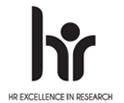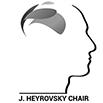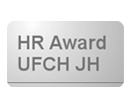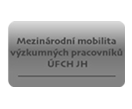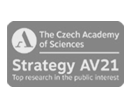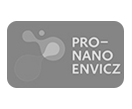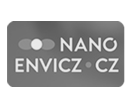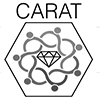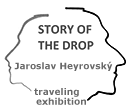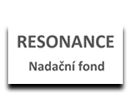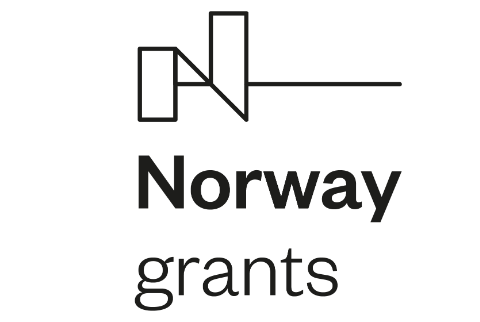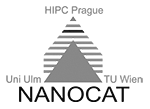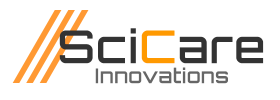Štefan Vajda was elected to the Academic Council of the CAS
In the first half of March 2021, the President confirmed Eva Zažímalová as the Chairwoman of the Academy of Sciences of the Czech Republic. Two weeks later on the 23rd of March, the delegates of the Academic Assembly of the CAS elected new members of the Academic and Scientific Council of the CAS for the years 2021-2025. This year’s meeting took place again remotely and online, same as at the end of last year.
Both elections, at the end of last year and this year, took place through a special election application. More than two hundred registered delegates elected to LVII. Meeting of the Academic Assembly a total of 15 members of the Academic Council of the CAS and 29 members of the Scientific Council of the CAS for the term of office 2021-2025.
In addition to six scientists who already have experience with this position from the previous period, the Academic Council of the CAS will include nine new personalities from the workplaces of the Academy of Sciences of the Czech Republic: Ilona Müllerová from the Institute of Scientific Instrument, Ondřej Beránek from the Oriental Institute, David Honys from the Institute of Experimental Botany, Jiří Homola from the Institute of Photonics and Electronics, Pavel Janáček from the Institute of Thermomechanics, Štefan Vajda from the J. Heyrovský Institute and Jan Vondráček from the Institute of Biophysics.
A total of 17 members of the Academic Council (including the Chairwoman Eva Zažímalová and the Chair of the Scientific Council) will act as executive bodies for the next four years. The Scientific Council has a mandate for a conceptual and advisory function in matters of preparation and implementation of the science policy of the Academy of Sciences. Their term of office begins on the 25th of March 2021.
The invitation to the online meeting of the Academic Assembly was also accepted by important guests. Among others, the President of the Senate of the Parliament of the Czech Republic Miloš Vystrčil thanked the delegates of the Academic Assembly for the valuable advice and expertise that experts provide to politicians, for example through the so-called AVexes and he added: „I want your views to be heard, respected, and politically listened to, for example in the context of the AV21 Resilient Society and Virology Strategy programs, which are exactly the areas we need to address“.
The position of researchers, research groups, and institutes in solving issues related to overcoming the covid crisis were appreciated by the Vice-Chairman of the Council for Research, Development and Innovation Vladimír Mařík. Among other things, he emphasized that the AV21 Strategy and individual programs are very inspiring. He will invite program coordinators to offer their experience and knowledge to other participants in the Czech scientific environment at one of the next RVVI meetings.
The budget of the Academy of Sciences has increased
An important issue that will be dealt with by the new members of the Academic Council of the CAS in the coming years, of course, is finance. Currently, the budget of the Academy of Sciences has been increased by 539,6 million year-on-year to a total of 6 563 million Czech crowns. „We see a change in the view of the importance of science and the appreciation of the results and the importance of our workplaces“, emphasizes Eva Zažímalová. However, in her opinion, the „pain“ of a low share of institutional resources persists, according to the comparison with abroad. The institutional resources should optimally account for seventy to eighty percent of funding, as for example is the case in neighbouring Germany. In our country, it is on average forty percent, which of course reduces the long-term perspective of the scientific environment.
A new virology centre?
President Eva Zažímalová also stated that the challenge for the coming years is to build a national virological centre within the competence of the Academy of Sciences and in cooperation with relevant partners from other institutions. „The last months of the pandemic have clearly shown that it is essential for the Czech Republic to have national authority and sufficient human, methodological and technical capacities in the field of virology.“
According to the Deputy Prime Minister and at the same time the Deputy Chairman of the Council for Research, Development, and Innovation Karel Havlíček, Czech science has survived in the time of the covid and now it is also necessary to look to the future. In this context, he emphasized that the institutional resources are gradually being increased to two percent of GDP. „This year, we have set aside 38,5 billion Czech crowns for science and research and the funds are also increasing for the Academy of Sciences. Additional funding should come from the National Reconstruction Program, which counts on expenses of 12,5 billion Czech crowns only for science and research, namely also for virological research“ he added.
Zdeněk Havlas, Vice-Chairman of the Academy of Sciences of the Czech Republic, adds that as the new virology centre and its equipment envision, it should be ranked among the best equipped in the world. “However, it needs to be filled with experts at the highest level and a new generation of virologist trained as soon as possible. Certainly, we would look for experts from abroad as well.”
Source: CAS






